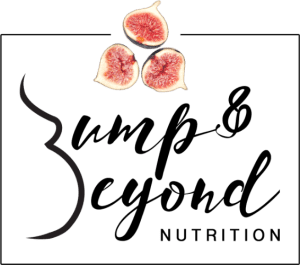
High blood pressure (also known as hypertension) is one of the most common problems women experience in pregnancy. It can be the source of worry and discomfort, but there are ways to manage it by implementing a healthy diet into your lifestyle.
If you suffer from high blood pressure in pregnancy, you will have one of two types:
- Chronic hypertension, which occurs when you already have high blood pressure before you fall pregnant.
- Pregnancy-induced hypertension, also known as gestational hypertension, which arises when high blood pressure is caused by your pregnancy.
Generally speaking, your blood pressure will fall in the first half of pregnancy and then rise again in the second half of your pregnancy. Most cases of pregnancy-induced hypertension (PIH) are diagnosed after 32 weeks. If left untreated, high blood pressure can cause serious health risks for both you and your baby. Therefore, it is so important for your midwife to monitor you and check for signs of high blood pressure at every appointment.

Whether you suffered from high blood pressure before falling pregnant or not, you can use these simple dietary and lifestyle changes to help contain your blood pressure within a healthy range:
Eat more essential fatty acids (EFAs)
This is clinically proven to lower blood pressure. Great sources of essential fatty acids include:
- Avocado
- Brazil nuts*
- Chia seeds
- Coconut oil
- Flaxseed oil
- Hazelnuts*
- Nut butter*
- Olive oil
- Oily fish such as salmon, mackerel, sardines and herring**
- Pumpkin seeds
- Walnuts*
* Just remember these should all be free from added salt and avoided if you are allergic to nuts!
** See Stay Safe – Foods to avoid and foods to enjoy in pregnancy
Aim to eat two to three portions of EFAs every day. One portion equates to a handful of nuts, a salmon steak, or a tablespoon of oil.
 Avocado and Salmon can be combined to create the perfect, nutritious and delicious breakfast or brunch option! Add a poached egg to further incorporate yet another good fat. Eggs will also inject your meal with another key source of protein alongside the salmon.
Avocado and Salmon can be combined to create the perfect, nutritious and delicious breakfast or brunch option! Add a poached egg to further incorporate yet another good fat. Eggs will also inject your meal with another key source of protein alongside the salmon.
Eat foods rich in calcium and magnesium
Calcium and magnesium reduce the risk of hypertension and pre-eclampsia during pregnancy. It is, therefore, really important to get plenty of both in your diet, as it may help to prevent or relieve high blood pressure. See the foundations of a healthy diet: part two.
The best sources of calcium and magnesium are green leafy vegetables such as:
- Broccoli
- Collard greens
- Kale
- Spinach
Other good vegetable sources include:
- Asparagus
- Carrots
- Celery
- Garlic
- Green beans
- Onions
- Peas
- Squash
- Sweet potatoes
- Tomatoes
The best fruit sources include:
- Apples
- Apricots
- Grapefruit
- Pears
- Pineapple
- Plums
- Pomegranate
- Strawberries
Get enough vitamin D
Vitamin D deficiency is a key player in hypertension, along with many other pregnancy complications (see ‘Recommended Supplements for Pregnancy’). NICE Guidelines state that all pregnant and breastfeeding women should take a vitamin D supplement, as typically we do not get enough through diet or sunshine in the UK.
Eat more whole grains

Whole grains are a rich source of soluble fibre, which has been shown to improve blood pressure control and reduce the need for medication. Try to eat four portions of whole grains each day, such as:
- Brown rice
- Buckwheat
- Millet
- Oats
- Spelt
- Rye
- Quinoa. See superfoods for pregnancy
-
Wholemeal flour
Try fermented milk products
There is overwhelming evidence to suggest that certain bacterial strains can help lower your blood pressure. Other beneficial effects include improving your digestion and boosting your immune system, so try to include one to two portions per day, such as:
- Cheddar cheese
- Live natural yoghurt
- Mozzarella
- Parmesan


